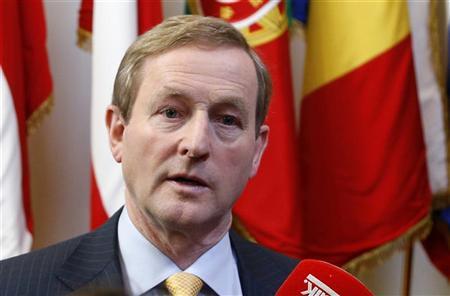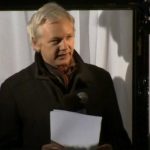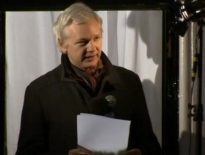(Reuters) – Ireland expects to return fully to bond markets late next year but needs a deal on easing its bank debt to make sure it can successfully exit its international bailout, Prime Minister Enda Kenny said.

Speaking days before the country takes over the EU presidency, Kenny told Reuters he was confident an easing of repayment terms on the promissory notes, or IOUs, that Dublin pumped mainly into the failed Anglo Irish Bank would be agreed by a March deadline.
He also called on European leaders to stick to a separate promise to look at improving Ireland’s costly bank rescue.
“We would hope to be the first country to actually exit (a bailout) in 2013 but that level of support that has been committed to Ireland is very necessary to be carried through,” Kenny said in an interview late on Wednesday.
“This assistance and this support is very necessary for Ireland to exit the program,” he said, adding that Dublin would not need to seek a second bailout.
Ireland takes over the rotating EU presidency in January for a six-month period in which it hopes to strike the bank debt deal with the European Central Bank and pave the way to exit its EU/IMF rescue program on schedule at the end of 2013.
While Dublin has been chiefly focusing on trying to change the punishing repayment terms associated with the promissory notes, it also hopes to retrospectively benefit from a proposal to allow euro zone rescue funds to recapitalize at-risk banks.
A June agreement by euro zone leaders to look at improving the terms of Ireland’s bank rescue helped its bond yields fall sharply and allowed it to become the first bailed-out state to borrow on long-term bond markets.
It also began to pre-fund a sizable chunk of the financing it will need once the 85-billion-euro ($113 billion) bailout ends next December.
But Ireland is not yet in a position to resume monthly bond auctions and the International Monetary Fund, one of its lenders, warned this week that durable market access depended greatly on Europe delivering on its commitments to the country.
Kenny said he envisaged Ireland making a sustained return to debt markets in the second half of 2013, adding that a deal on the 31 billion euros of promissory notes would help this greatly.
“It would be much easier to do that if we have a conclusion to the matter of the promissory notes and ECB negotiations which would obviously make it easier for us to have a full return to the markets… probably in the second half of the year.”
IRELAND’S POSITION STILL ‘FRAGILE’
Speaking at government buildings where his predecessor Brian Cowen had to accept a humiliating bailout two years ago, Kenny said he hoped Ireland’s EU presidency would be one of solutions, not least when it comes to finalizing a seven-year EU budget early next year.
Asked if one of those solutions would be clarity on whether Spain would seek a full bailout, Kenny said he was not sure that Mariano Rajoy intended to do so “at least as yet” but that he had told the Spanish Prime Minister of the intensive and invasive conditions that come with seeking help.
Holding the presidency will not however stop the 61-year-old former teacher pushing Ireland’s agenda and he hopes to gain some certainly as to whether Irish banks can be retroactively recapitalized when Europe is able to use rescue funds to shore up struggling lenders in 2014.
“I’m glad that the supervisory mechanism has been put in place. While that may not be concluded by the end of 2013, that does not preclude the question of the (as yet unclear) definition of legacy assets being (put on the table),” he said.
Kenny, whose coalition government will near the midway point of its five-year term as the EU presidency ends, said there were signs that confidence was returning to the country, pointing to recent fund raising by banks and modest economic growth.
However Ireland desperately needs growth to accelerate if it is to unwind the biggest deficit in the euro zone and eat into a government debt that is forecast to peak at a dangerously high 121 percent of gross domestic product next year.
While its austerity plan is held up as an example by euro leaders, Kenny said that with unemployment “unacceptably” high at nearly 15 percent and many families facing difficulties, he has to remind colleagues how fragile Ireland’s position still is.
“The Irish people have shown great patience and understanding of the difficulties that the government faces. No Prime Minister of the last 50 years has faced the challenges that my government faces,” Kenny, Ireland’s longest-serving parliamentarian, said.
“I remind our colleagues abroad internationally and in Europe that while Ireland has made good progress, solid progress, we are still in a fragile position.”
($1 = 0.7542 euros)
(Writing by Padraic Halpin; Editing by John Stonestreet)





